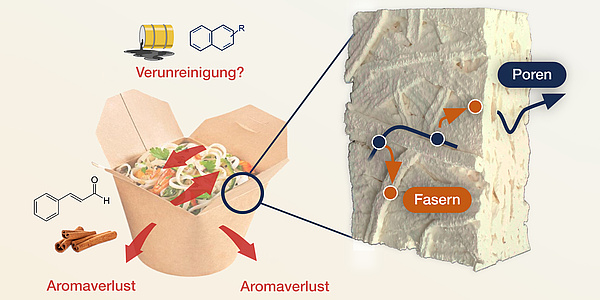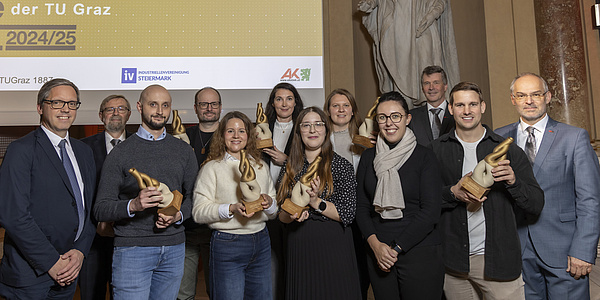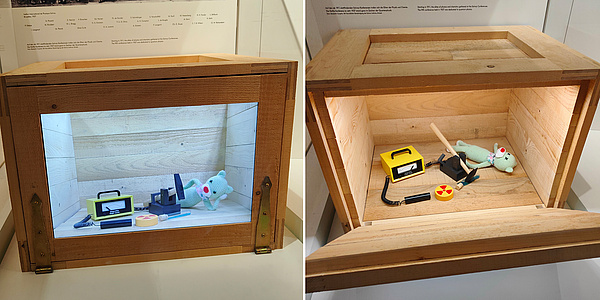… Innovation through synthetic biology
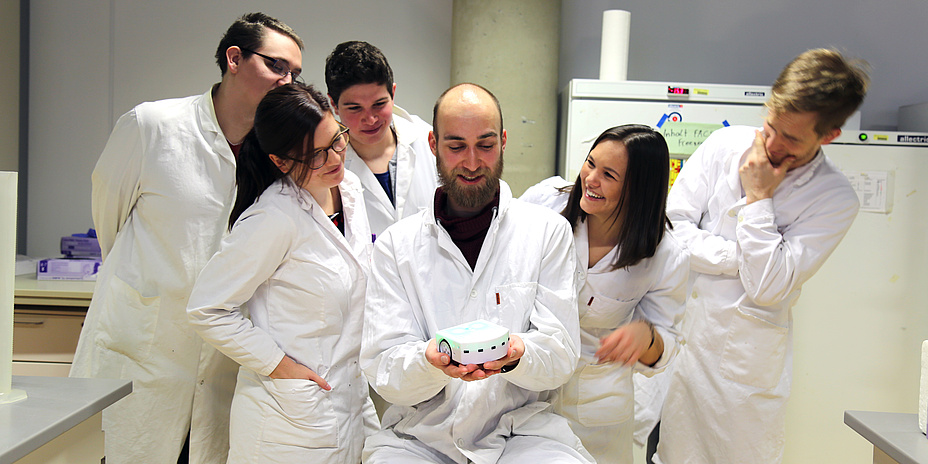
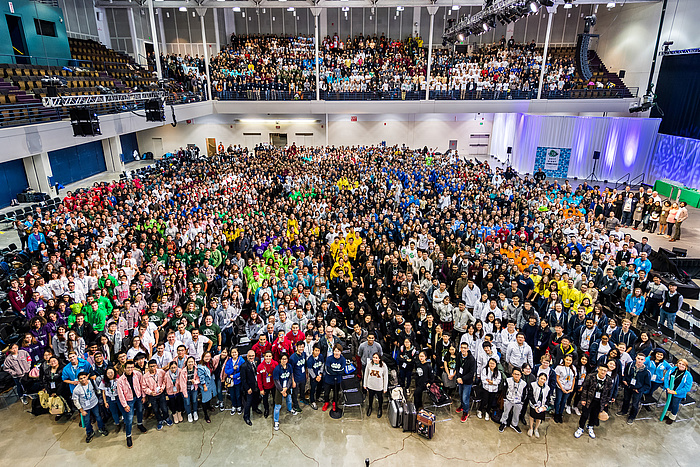
iGEM – international genetically engineered machine – stands for a whole community of committed, budding researchers in the field of synthetic biology. Existing natural biological systems are recombined or improved and used in a variety of ways.
Beginning
I know, you’re probably asking yourself what an iGEM project actually is and how it runs.Right at the beginning, usually in October or November, motivated students with a general interest meet up and exchange information about their studies and new research or simply enjoy a couple of beers together and talk about everything and anything.
Students of the master's degree programmes <link _self int-link-internal internal link in current>Environmental Systems Sciences, <link _self int-link-internal internal link in current>Biomedical Engineering, <link _self int-link-internal internal link in current>Chemical and Process Engineering/Natural Sciences, <link _self int-link-internal internal link in current>Chemical and Pharmaceutical Engineering, <link _self int-link-internal internal link in current>Computer Science, <link _self int-link-internal internal link in current>Information and Computer Engineering, <link https: www.fh-joanneum.at industrial-design master _blank int-link-external external link in new>Industrial Design, <link https: www.fh-joanneum.at communication-design master _blank int-link-external external link in new>Communication Design as well as <link https: studien.uni-graz.at de ordentliche-studien doktoratsstudium-der-sozial-und-wirtschaftswissenschaften sozial-und-wirtschaftswissenschaften-doktoratsstudium _blank int-link-external external link in new>Social and Economic Science are particularly sought-after in the Graz iGEM team.
Over the winter and the Christmas holidays we think up sometimes absurd and ludicrous project ideas which are usually later discarded. As a team we try to find a partner at the University or in companies in order to obtain glimpses into already existing research areas. When the decision is made in spring to register for the competition for that year, then the really hot phase of the project starts.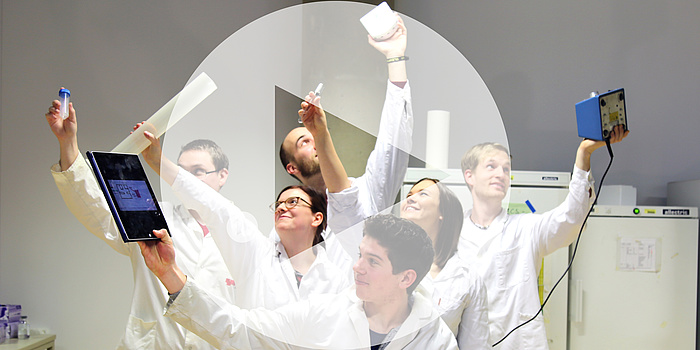
Hot phase
Hundreds of promotional emails are sent off and phone calls made with potential sponsors, and this is followed by at least an equal number of moments of frustration. But if you know how to introduce your chosen project in an appropriate way, you’ll find more than enough supporters. Several sub-components of the project then follow, because in addition to planning possible laboratory work and trips, an iGEM project also contains extensive public relations work. Here, there is an opportunity to advertise both the team and the project as well as pass on one’s own enthusiasm for the study programme to other interested people. In 2017 we carried out various interviews with experts, organised a public panel discussion on the subject of genetic engineering, and cordially invited many people to entertaining events.In July and at the start of the summer holidays, most of our meet-ups with other iGEM teams take place. If you are interested, you can travel all over the place. In 2017, we took the opportunity to follow up on an invitation from the Delft University of Technology team and spent five incredibly exciting and fun days in Delft together with teams from the Netherlands, Great Britain, Italy, France, Denmark, Sweden, Finland and Germany. Usually the first ‘collaborations’ are made during such meet-ups – teams from various countries come together and work collectively, intensively and comprehensively on one topic. Collaborations are extraordinarily important for competitive success.
Most progress is made in the project over the three summer months. If you can plan well and distribute the tasks properly, you don’t have to give up too much free time for holidays, summer job or friends and family. The whole work culminates in the ‘Wiki Freeze’, which has meanwhile become legendary among ‘iGEMers’ – the <link http: team:nawi_graz _blank int-link-external external link in new>digital and publicly available documentation of all work and results to be evaluated.
When this has been completed, you now have to wait and endure a lot of tension, and then prepare the concluding journey to the giant jamboree in Boston, Massachusetts, USA, where the finals of the competition take place. The teams have been presenting their ideas, implementations and results to the public in poster sessions and stage presentations since 2003.
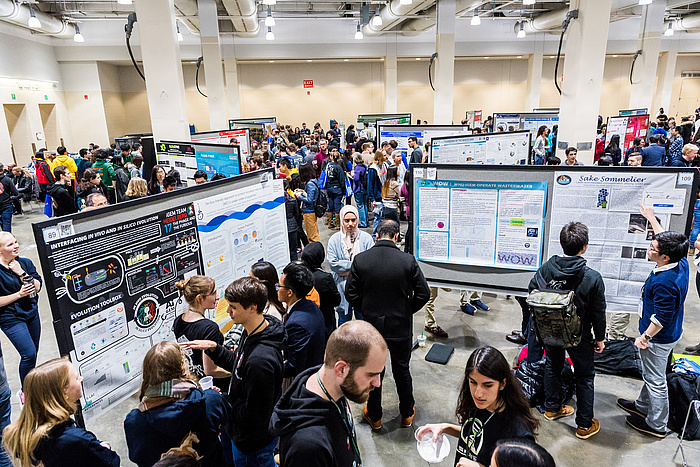
You can find a more detailed documentation of the events experienced by the NAWI_Graz 2017 iGEM team on the <link http: team:nawi_graz notebook _blank int-link-external external link in new>iGEM wiki and if you want to make contact with the team, you can <link https: de-de.facebook.com igemteamgraz2017 _blank int-link-external external link in new>visit them on Facebook or <link int-link-mail window for sending>send an email!
If you would like to meet TU Graz´s student teams face to face you will be able to do so on June 16th: The students are presenting their work at "TU Graz StreeTech" at Hauptplatz Graz. Come, join and get informt! For more information visit the events <link https: www.tugraz.at studium studieren-an-der-tu-graz tu-graz-streetech _blank int-link-external external link in new>website ‘TU Graz StreeTech’.
Kontakt
Brockmanngasse 15
8010 Graz, Austria
<link int-link-mail window for sending>igem.nawigraz@gmail.com
<link int-link-mail window for sending>office@igem-graz.at
<link https: www.tugraz.at studium studieren-an-der-tu-graz studierendenteams wettbewerbs-und-fokusteams igem-team-nawi-graz _blank int-link-external external link in new>iGEM-Website
<link https: www.nawigraz.at de neuigkeiten detail article nawi-graz-igem-2017 _blank int-link-external external link in new>iGEM-News
<link https: de-de.facebook.com igemteamgraz2017 _blank int-link-external external link in new>iGEM on Facebook
